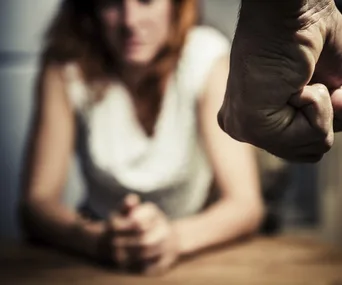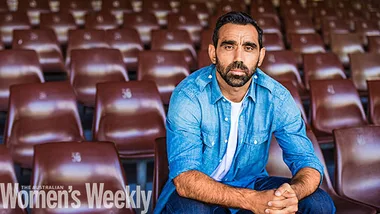My name is Kirsty Mackie. And I am a lawyer who works with elder abuse victims every day.
The abuse of our elderly is domestic violence and it is not just my business, but everyone’s. So take a moment to meet some of my clients.
One man sold his house and moved in with a family member. He was then made to live in the garage with no running water or electricity.
Some have had their life savings taken from their bank accounts by family members acting under an Enduring Power of Attorney.
And some have had family members take so much from them they’ve been left on the streets.
Older Australians are being financially abused at an alarming rate with a 20 per cent increase in reported cases in 2014. Imagine if there was a 20 per cent increase in violent crime or assaults in a single year? There would be a public outcry.
In 2009 an 89-year-old woman died in a Brisbane hospital.
Her death was ultimately caused by a blood clot from a broken leg which had been left untreated for 12 weeks. And she was in the “care” of her daughter.
The Coroner investigating the death stated that the daughter’s conduct was “neglectful to the point of cruelty in a distressed, demented and totally dependent patient.”
Despite this finding, the daughter never prosecuted.
In January 2008 a 64-year-old man was found dead in his Sydney unit where he had laid unnoticed for more than a year.
That same year a vibrant, social and independent 83-year-old woman was murdered for financial gain by an unscrupulous woman who planned to profit from the sale of her home.
There has been no public outcry and the abuse continues unabated.

Kirsty Mackie with her mother.
Almost one fifth of homeless Australians are over the age of 55. And for 70 per cent of them, this is their first experience of homelessness.
Evidence suggests that a large proportion are in this position due to a “critical incident” – namely financial abuse and family breakdown, with Australia now home to the fourth highest old age poverty rate in the OECD.
Psychological abuse in the elderly is rife, too, and can include social isolation; for example, cancelling the older person’s outings, refusing access to grandchildren or other family members and treating the older person like a child.
Lack of social interaction is now being recognised as a significant health issue for older people, with a recent study from the University of Adelaide claiming lack of supportive social relationships for the elderly is as destructive to their health as smoking 15 cigarettes a day or drinking more than six alcoholic drinks a day.
But whether it’s financial, psychological or physical abuse, why aren’t older Australians reporting domestic violence?
Like most victims of domestic violence there is a strong sense of shame associated with being abused by a loved one. But elderly victims often rely on the perpetrator for care, too.
Of the elderly, women are twice more likely to be abused than men, with 75 to 85-year-olds being the most vulnerable to this abuse.
Of the victims, 80 per cent are being abused by a family member – with sons committing 36 per cent of the abuse and daughters committing 38 per cent.
I’m a daughter to a mother suffering from dementia. I’m also a mother and a wife, who in my spare time gives free seminars and lectures to students, seniors groups and community workers in an attempt to raise awareness of this terrible silent tragedy that is affecting thousands of older Australians.
Elder abuse is a real problem in Australia.
The legal and policy strategies for dealing with elder abuse are weak and older people are becoming increasingly marginalised and forgotten in our modern society.
There needs to be a national enquiry into elder abuse and then a coordinated Federal and State response including incorporating civil and criminal protection for older people into legislation.
I would like to live in a community that does not accept or tolerate a culture of abuse and neglect of our most vulnerable citizens.
And if you’re still reading this, I know you do, too. So do what you can, and talk to your GP, local police or a lawyer if you are concerned about yourself or someone else who may be a victim of elder abuse.
Ten tips to avoid financial abuse
1.Don’t give your PIN or debit/credit card to anyone
2.Don’t allow anyone to register for online banking on your behalf
3.Get independent legal advice before loaning money to family, moving in with family or allowing family to move in with you
4.Talk to your lawyer ALONE and not in the company of family members
5.Talk to Centrelink before loaning money, gifting money or moving in with family as your pension may be affected
6.Make a Will and an Enduring Power of Attorney and review these documents every 3 years
7.Appoint more than one Attorney to act jointly
8.Don’t sign anything unless you understand what you are signing
9.Join a group, keep healthy and maintain a support network
10.Speak up! Elder abuse is a form of family violence. Talk to your GP, police or a lawyer if you are concerned about yourself or someone else.
Kirsty Mackie is Principal at KRM Legal. For more information about Kirsty’s free community seminars or if you are interested in booking Kirsty to speak at an event contact info@krmlegal.com.au.



